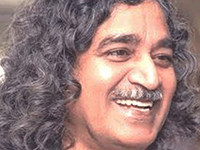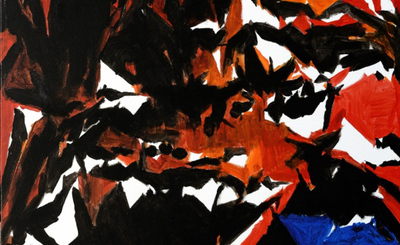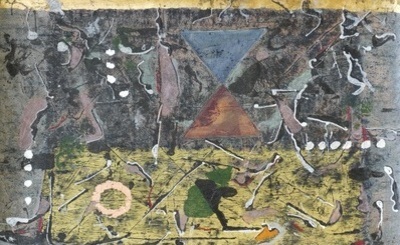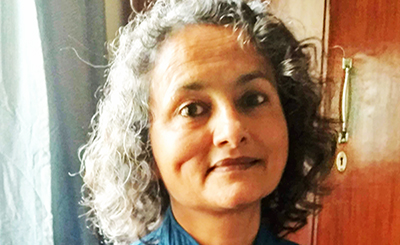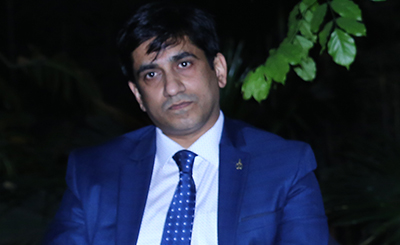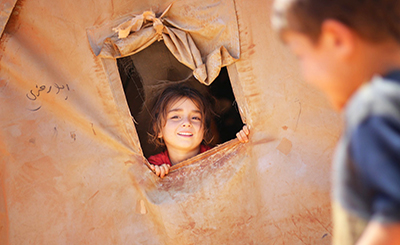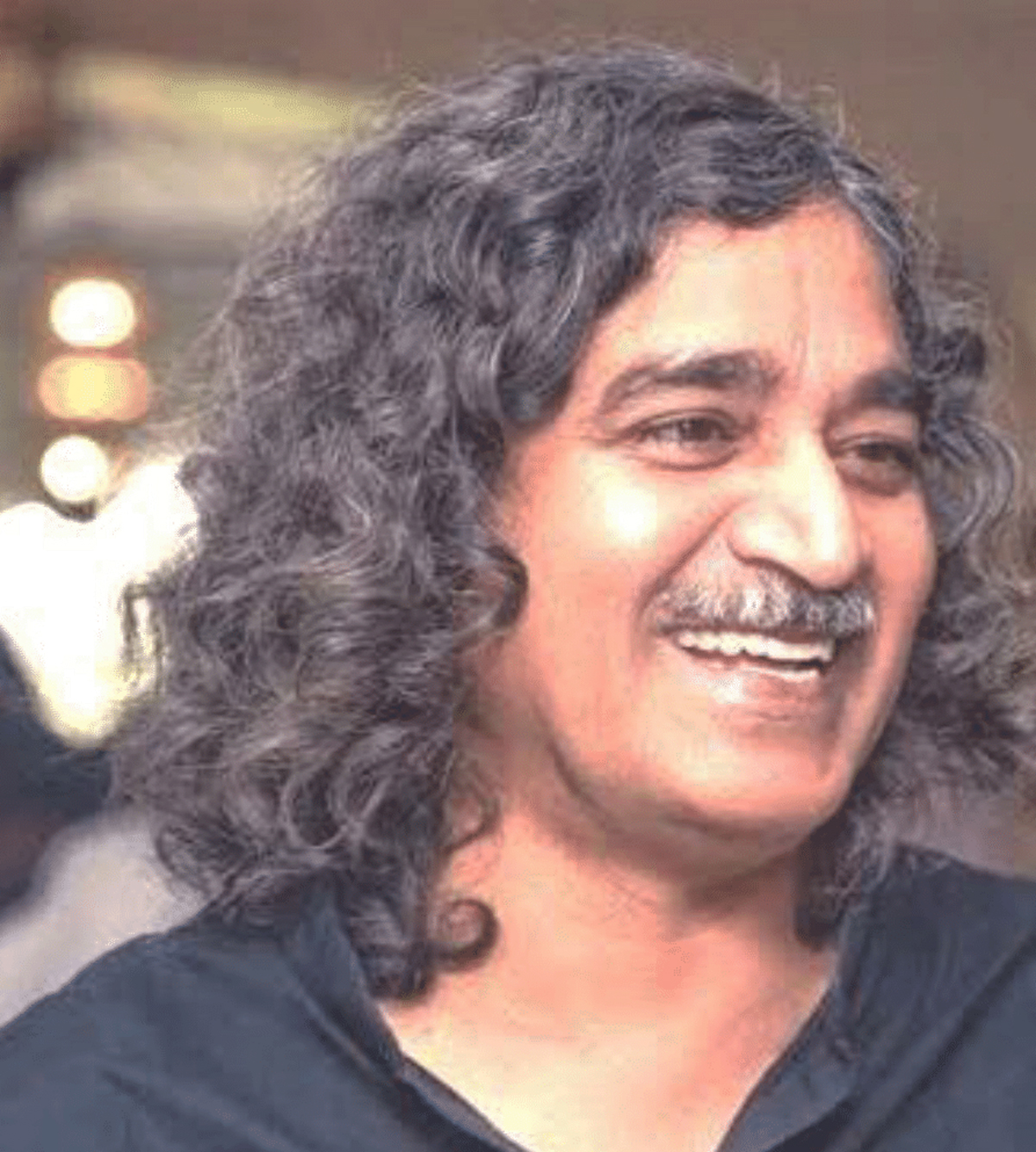
Ashwani Kumar. Photo courtesy of the poet
Poet’s Note: The Architecture of Alphabets
Does it really matter if you speak your mother-tongue and write in another language? Sorry if it sounds grim, a neurotic excuse to admit that you don’t have a language of your own? I must confess English is neither my mother’s language nor my father’s language. Also, there is nothing ‘Anglophone’ about my social and family background. My family travelled frequently from small town to smaller towns and often lived in makeshift asbestos-roofed houses. When not chasing river-pirates, my father would read cheap translation of Tolstoy, Lorca and Ibn Battuta. I am told that he tried unsuccessfully to publish his ‘motorcycle diary’ in fantasy magazines. Believe it or not, I did not speak until I was ten. I only mimicked green parrots and played with pigmy elephants in the Saranda forests at the tri-junction of Odisha-Bengal-Bihar (undivided). And I would often stammer. Little did my father realize that ‘stammer is no handicap. It is a mode of speech’ and ‘when a whole people stammer, stammer becomes their mother-tongue.’ (K. Satchidanandan). So ‘I was wounded early, and early I learned, that wounds made me’ (Adonis).
It is true that English is the language of the powerful and ‘bald-eyed Gods’. But it has also become the ‘power of the powerless’. Wishing to speak truth to the power, I learnt English ‘from rats, reptiles, insects and part-time teachers with plastic accents’ in schizophrenic fits of self-harm. You won’t believe but I loved James Bond’s car chases in my adolescent years, and enjoyed playing with rubber toys of Lenin, Stalin and Che Guevara in my college days. I suspect when I landed in ‘barren Oklahoma’ of Derek Walcott for my doctoral study, I experienced my many heteronyms colluding and colliding with each other at the hallucinatory cliff of my existence. I had travelled to North America so absentmindedly that I didn’t even know Oklahoma was a land of violent tornados. Geographers and geographies often betrayed me. For days, I remember I suffered from the cold haemorrhaging guilt as if I practised human sacrifice in a foreign language. To overcome the lack of a primordial language of my skin colour, dreams and memory, I would often hide into the claustrophobic tornado shelter on the campus ‘with the long-bearded Darwin’ and his progenies. Chewing long lines of unspoken words, I invented a new language of survival but never altered my voice either sighing or sewing. While I remained an untutored, invisible and disenfranchised Bihari migrant in the Anglophone world, whimsy verses flourished in the backyard of my ‘political unconscious’. No wonder, psychologist Ashis Nandy’s fictional prolegomena for ‘my grandfather’s imaginary typewriter’ ended my exile at home and the world (Ghare-Baire). Ah, it also led to the end of my prelapsarian Eden. I had already lost my mother and mother-tongue. And when I returned home my father was struggling with dementia remembering ‘only his first bribe from a poor widow’. This is how I arrived at poetry in English; an intimate and frightening homecoming!
Waking Early in Ayodhya
Waking early in Ayodhya
I recall my late-night dream;
Highlighter pink cheeks, pine lips, mascara eyes,
long lonely collar bones,
Honey suckle breasts, queen size lotus buttocks,
I remember only broken parts not the whole body…
I also slowly remember
Dirty brown Chocolate faced banished king
Venting his dormant desires;
Seduces the wife of a deserted saint for one-night stand
In the kitchen of his divine consort…
He spreads his Teflon-coated legs
Bends his artificial arrow.
She quivers, moans in ecstasy
They mate all day shamelessly
And the bricks of the mosque fall;
screaming with each fatal stroke…
Indra drowns in more grumpy slumber,
and the wrinkle free blood swallows all illegalities in the new republic… Jealous saints fret not any longer over illicit romance…
Pimps lament over the loss of love juices in the sacred hours…
I slowly learn from barren northern winds,
Historians have discovered lately
From sixth century BC to unknown AD
The banished king and his casual lover
Have never made love in early December…
(Published in Indian Literature 232, March-April 2006, Vol 1 No 2)
Dehri-On-Sone
Before my eyes
This town has vanished in the reservoir of waters.
Not long ago
There were factories, worker’s colonies and chimneys
Burning away in golden flame of freedom, and marbled-eyed
Women leisurely packing tiffin boxes with
Dry jack-fruit vegetables and breads for their husbands
Sweating in the sacred fire of iron making.
Alongside the bougainvillea shaded pavements
Children grew up reading Russian fairy tales.
Winter and summer days galloped through the
Terraces of adventurous memories.
I remember my father whistling away at the railway platform —
Light eyed muscular Tramway coaches stopping,
Unloading dhoti-clad crooked merchants from the far away land.
Now the town is empty —
Smell of rusted machines fills the graveyards of widowed bangles.
Strange giraffes, dogs and monkeys scamper down
The deserted streets practising new grammar of obscenities.
No use locking the doors or hiding behind the windows
I am the only one who lives here.
My eyes are torn dreaming about red flags, and
Hungry pigeons flying in the whispering sky.
(*Dehri-on-Sone, also known as Dalmianagar, was once a vibrant industrial town in Bihar)
Writing About Grandparents and Our Families
This is the year of my birth, and
I am writing about my grandparents and our families.
Returning from the village bazar,
With a gamchha on his shoulders
And a vegetable bag in hands
My grandfather would often rest in
The rusted Ashok pillar’s shadow
At the end of the afternoon.
Spinning away his worries
Of unpaid dues to moneylenders
He would spread his tired sagging body
As one dries clothes
On the ropes in summer
And croon rustic fishing songs.
Sometimes he would take a profligate
Nap, dreaming about his
Accidental wedding, grandmother’s
Turmeric varnished emerald figure
And the mustard fragrance of love making
In the steaming Koshi river.
In his sleep, his eyelashes
Flickered with unceasing excitement of
A gyrating reindeer in the front car seat.
And lacquered horse-drawn
Cinnamon clouds
Poured over his prickly lips.
Drenching the inner corridors of
His blazing body, sometimes
He snored so much that
Bumble bees ran away as green parrots,
Mimicking unknown patriotic songs
to my jobless uncles, and cousins.
Once he slept
So long that crops grew
On his giant palm.
And school girls skipped their
Classes for harvesting millets
For their migrating gypsy lovers.
Drowned deep in the memories of
Columbus’s ship discovering a New world and
Consignments of exotic spices,
My grandfather returned home .
In the evening, there was termite — silence in my house,
No restlessness or impatience either.
After taking bath in the frigid holy waters, and
Wearing her fancy yellow dress
Grandmother had fallen asleep in
Sanatorium gloom. It was morning
My eyes opened to green neem leaves burning in her arteries.
Sparrows and squirrels were feeding themselves
Jaggery cones from the black tin boxes
In the kitchen. Sitting near the cold stove,
Grandfather was applying on his wounds
Sun flower paste, and
Separating darkness of red light from blue light darkness.
This is the year of my birth, and I am writing about my grandparents,
Our families, and future ancestors.
*Gamchha — a soft cotton scarf carried on shoulders by men
Women Studying Mathematics
You should not complain
why women study mathematics.
their laughter or their banter are all inconsequential
when they yell at the false ceilings of Pythagorean triangles.
I can show you
women are roller skating and solving
algebraic proofs of your poetry, and
hoisting flags of freedom against bald-eyed Gods.
When women do things like
ploughing, harvesting in the fields or
building boats in the shipyards
only then we know the magical reality of numbers.
You are wrong —
women never stop playing football in the three-dimensional sky.
When threatened with honour-killing by Zebra-striped boys
they simply huddle into each other’s arms and rewrite
history of light, literature and lottery —
a new manifesto of revolution in mathematics
The essay and the poems are part of our Poetry Special Issue (January 2021), curated by Shireen Quadri and Nawaid Anjum. © The Punch Magazine. No part of this essay or the new poems exclusively featured here should be reproduced anywhere without the prior permission of The Punch Magazine.
More from The Byword
Comments
*Comments will be moderated



